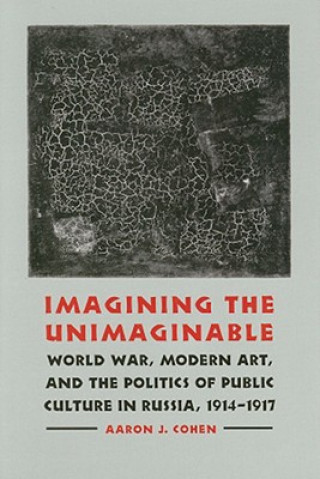
Dostawa
Doradca ds. zakupów
16 127 528 książek w 175 językach







Pokaż wszystkie języki (175)





Jednak się nie przyda? Nic nie szkodzi! U nas możesz zwrócić towar do 30 dni
 Bon prezentowy
O dowolnej wartości
Bon prezentowy
O dowolnej wartości
Bon prezentowy to zawsze dobry pomysł. Obdarowany może za bon prezentowy wybrać cokolwiek z naszej oferty.
Imagining the Unimaginable
 Angielski
Angielski
 129 b
129 b
30 dni na zwrot towaru
Mogłoby Cię także zainteresować


As World War I shaped and moulded European culture to an unprecedented degree, it also had a profound influence on the politics and aesthetics of early-twentieth-century Russian culture, even more than its tumultuous revolution. In this provocative and fascinating work, Aaron J. Cohen shows how World War I changed Russian culture and especially Russian art. A wartime public culture destabilized conventional patterns in cultural politics and aesthetics and fostered a new artistic world by integrating the iconoclastic avant-garde into the art establishment and mass culture.This new wartime culture helped give birth to non-objective abstraction (including Kazimir Malevich's famous Black Square), which revolutionized modern aesthetics. Of the new institutions, new public behaviours, and new cultural forms that emerged from this artistic engagement with war, some continued, others were reinterpreted, and still others were destroyed during the revolutionary period. "Imagining the Unimaginable" deftly reveals the experiences of artists and developments in mass culture and in the press against the backdrop of the broader trends in Russian politics, economics, and social life from the mid-nineteenth century to the revolution. After 1914, avant-garde artists began to imagine many things that had once seemed unimaginable. As Marc Chagall later remarked, "The war was another plastic work that totally absorbed us, which reformed our forms, destroyed the lines, and gave a new look to the universe."
Informacje o książce
 Angielski
Angielski
Kategoria




 Jak kupować
Jak kupować















